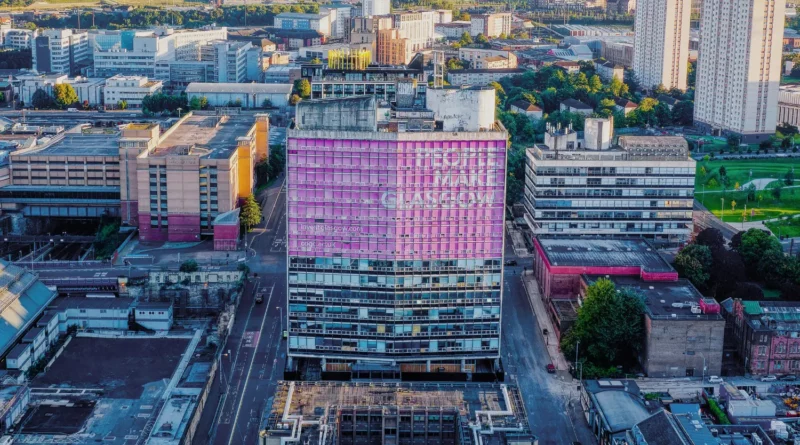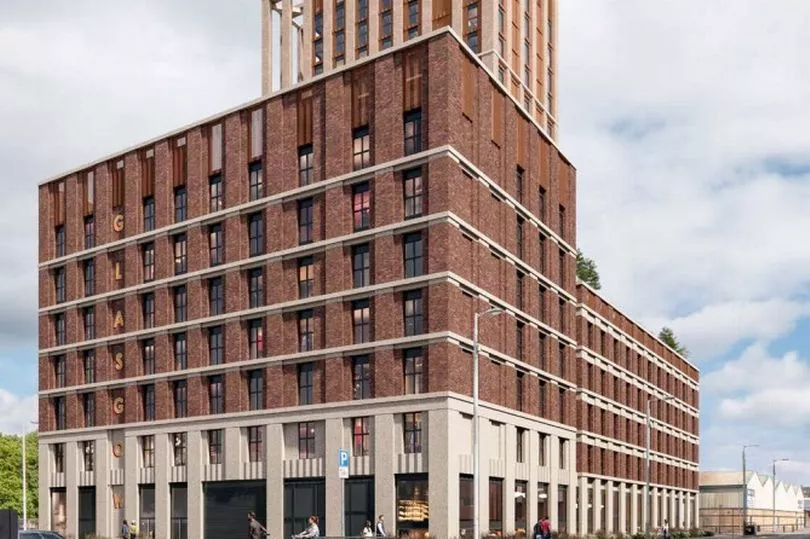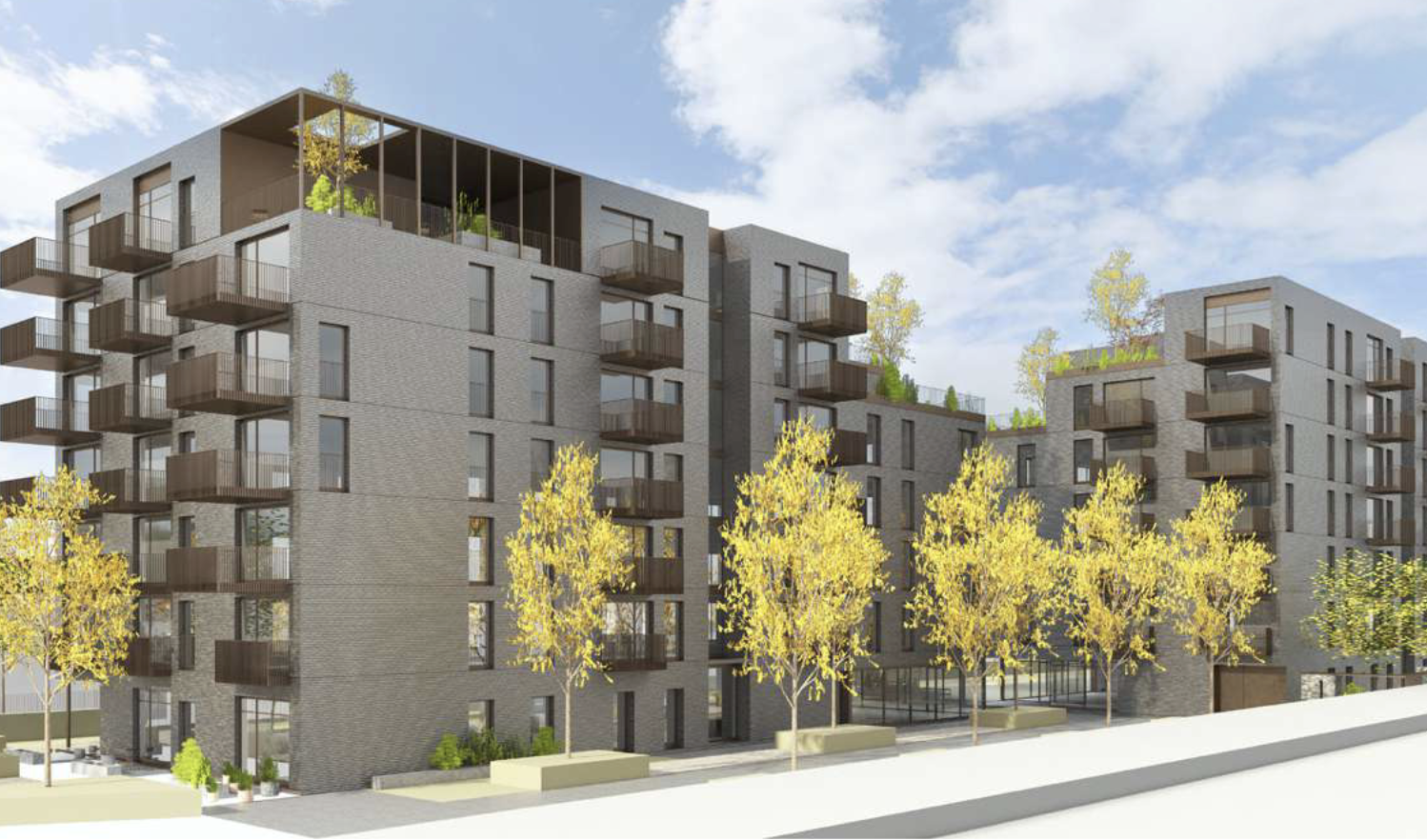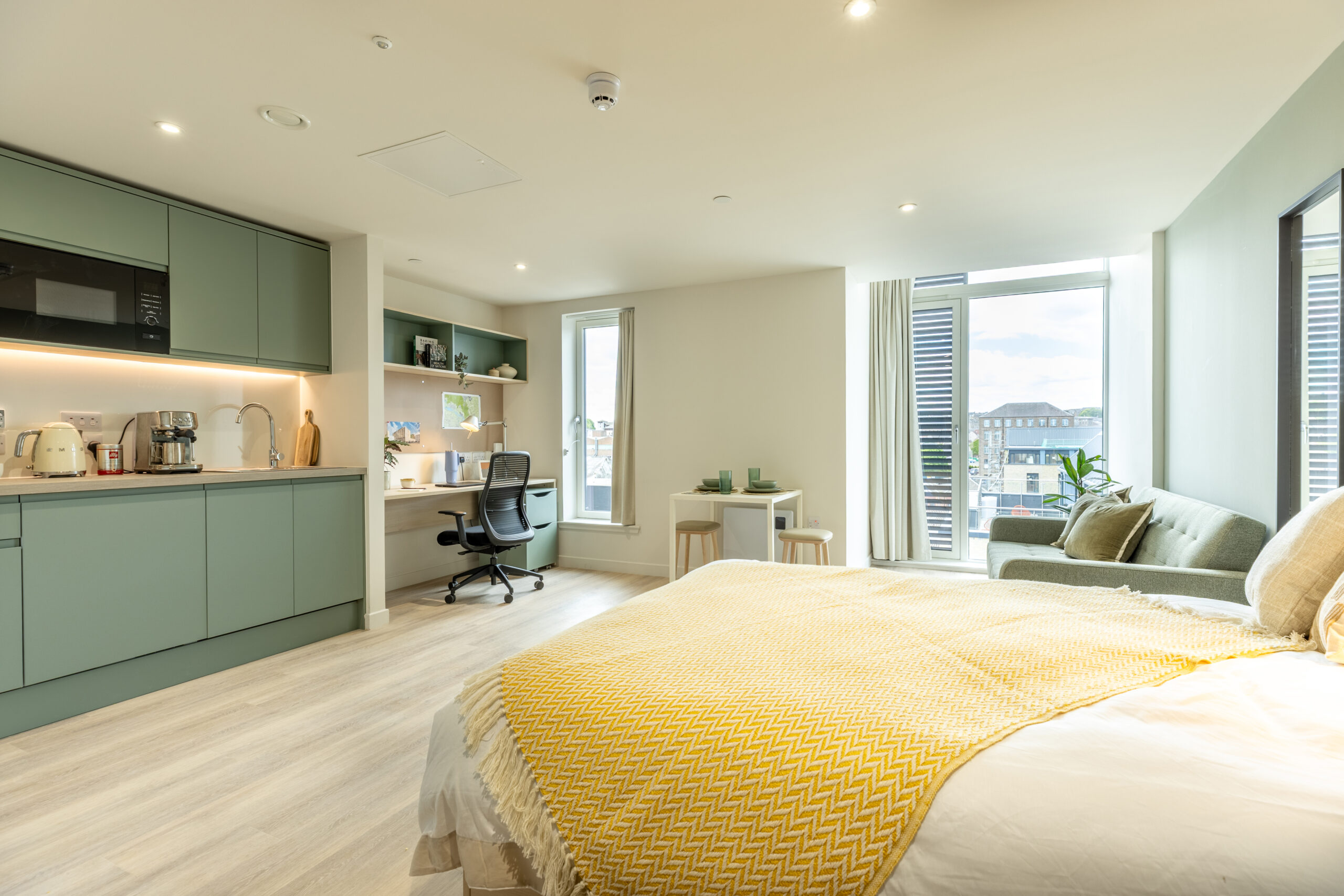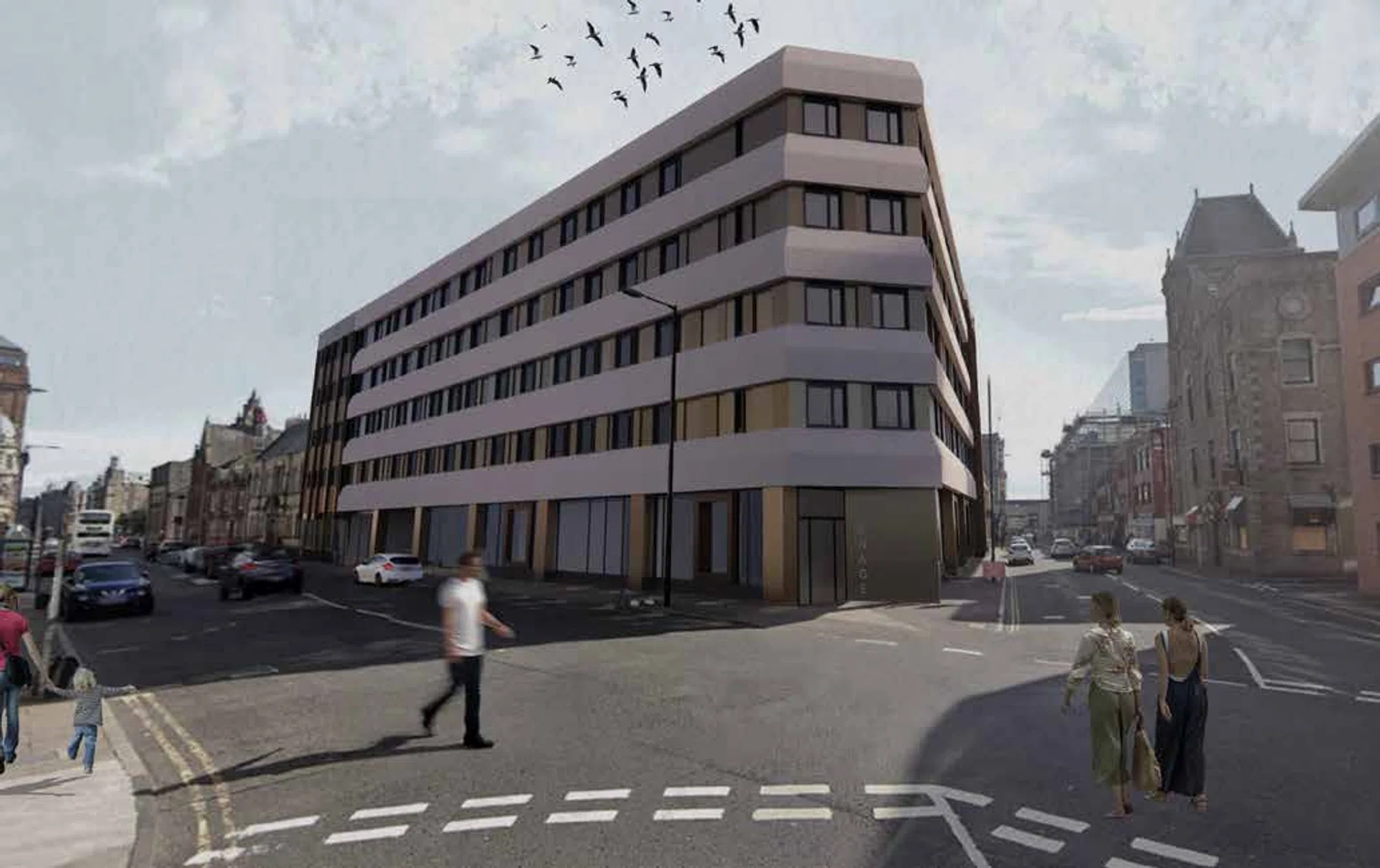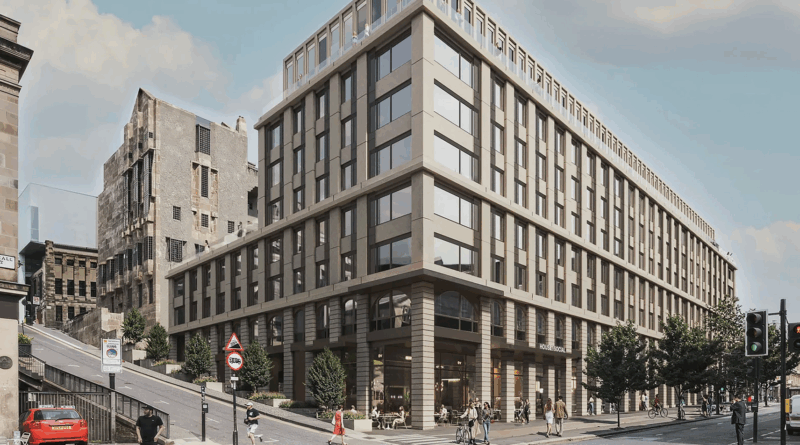UK: Glasgow’s Met Tower is set to be redeveloped into co-living accommodation after UK-based developer Vita Group acquired the landmark building.
The scheme will introduce Vita’s Union co-living concept to Scotland for the first time, transforming the former college building, which has stood vacant for more than a decade. The Union model offers a range of apartment sizes for individuals, couples, and small groups, alongside shared amenities designed to create connected communities.
The project will draw on the approach used at Union Manchester, which opened earlier this year with more than 1,600 co-living beds and communal facilities such as co-working areas, a residents’ bar, wellness spaces, and social lounges. Both Manchester sites are fully let.
Vita said the redevelopment would support a new community of city centre professionals, help retain Glasgow’s growing population, and contribute to economic activity. The plans align with Glasgow City Council’s City Centre Strategy 2024–30, which aims to double the city centre residential population by 2035, repurpose underused buildings, and create mixed-use neighbourhoods.
Councillor Susan Aitken, leader of Glasgow City Council, said: “This is fantastic news for the future of a listed Glasgow landmark – and for the ongoing transformation of our city centre. Vita’s plans will bring what is an emerging accommodation concept to Glasgow, one that’s been successful elsewhere and which can meet the needs of many younger residents.”
Vita is working on detailed proposals, which could include refurbishing the Met Tower, creating new communal spaces, and improving links between existing and new structures and surrounding streets.
Max Bielby, chief operating officer of Vita Group, said the company saw an opportunity to bring “much-needed accommodation” to the city centre and would work in partnership with local stakeholders to “breathe new life” into the building.
The acquisition forms part of Vita Group’s long-term investment in Scotland, where it has already completed three developments providing more than 1,000 beds for students and young professionals, with three further projects in progress that will add another 1,232 beds.
Stuart Patrick, chief executive of Glasgow Chamber of Commerce, said the development was “another welcome vote of confidence in Glasgow’s future”, citing its potential to support the city’s innovation economy and the Glasgow City Innovation District.


